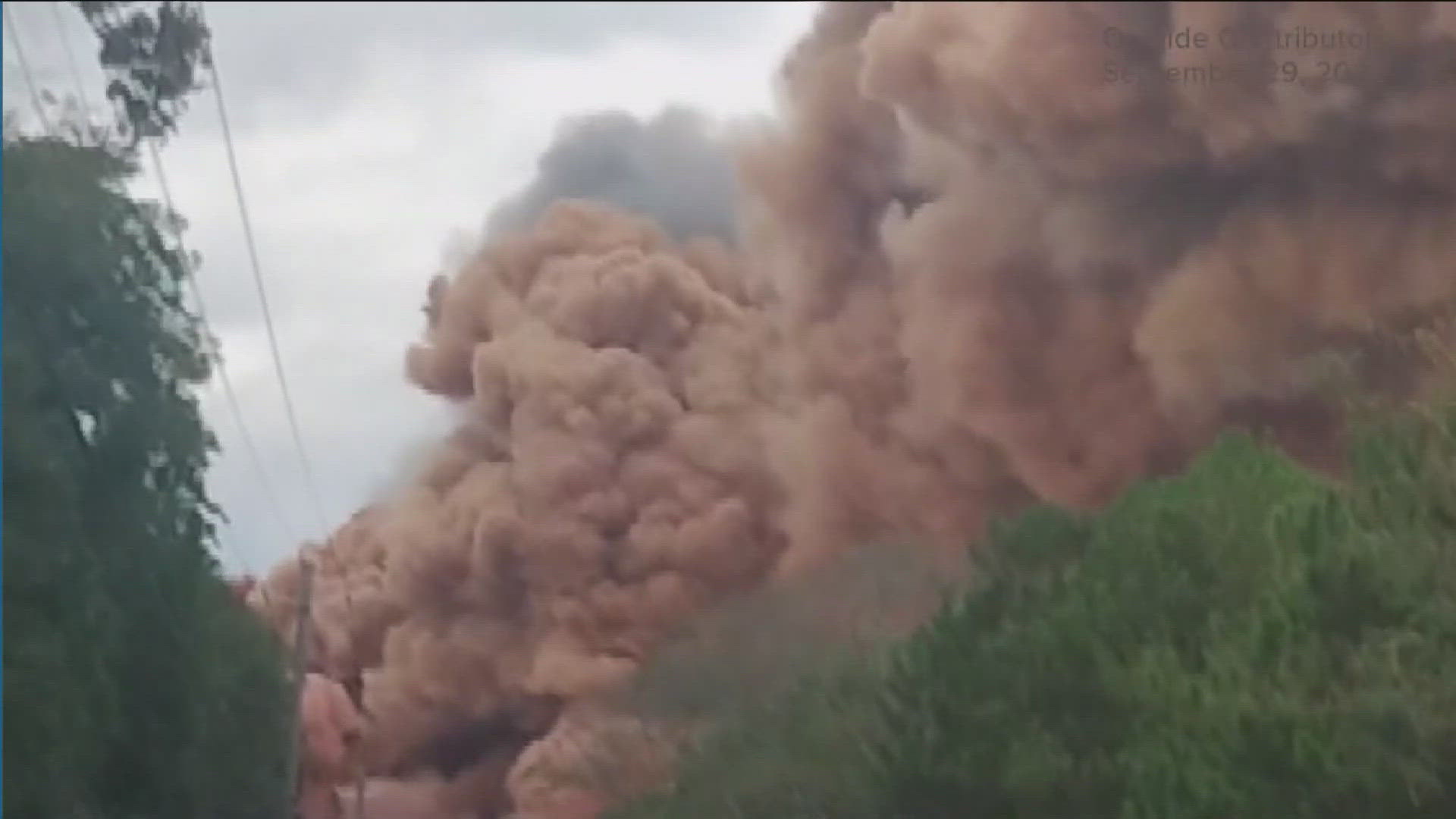CONYERS, Ga. — People around inner metro Atlanta are expected to wake up Thursday and smell chlorine and see a haze from the Conyers chemical plume, according to the Georgia Emergency Management Agency/Homeland Security (GEMA).
In a release Wednesday, GEMA said that "current weather models show the winds will begin to shift from the east to the west after sunset Wednesday."
RELATED: Chlorine readings exceeded 'action level' at points overnight, GEMA says | Conyers plume updates
"Smoke is predicted to settle towards the ground as it moves toward Atlanta. There is a high likelihood that people across Metro Atlanta will wake up on Thursday morning seeing haze and smelling chlorine," the release added.
The agency also said that overnight, readings "detected some exceedances above the action level for chlorine" directly at the site of the BioLab facility where a fire broke out Sunday and set in motion the plume situation.
RELATED: Here's why the air quality around the Conyers chemical plume is worse overnight than during the day
An action level is, according to the EPA, "the concentration of a contaminant which, if exceeded, triggers treatment actions or other requirements."
Officials on site have what's called a Trace Atmospheric Gas Analyzer for real-time monitoring of air quality. Overnight workers at the site "have continued to make progress in neutralizing the product."
"As the neutralization process continues, periodic increases in chlorine levels around the facility are expected," GEMA said.
In anticipation of Thursday morning, GEMA described a process by which air settles in the evening, and with it the plume, making the smell more noticeable by morning.
"As the air lifts back up in the afternoon and evening, the smell and haze should dissipate. Chlorine has a very low odor threshold, meaning you can smell it before it reaches a harmful level," the release said.
GEMA added in its release:
At this time, chlorine levels in the air sit at safe levels, however, out of an abundance of caution, continue to follow the advice of your local EMA’s. However, if you experience symptoms like the ones mentioned above, please contact your health provider or the Georgia Poison Center at 404-856-6252.
Smoke that contains chlorine compounds can cause various symptoms including irritation of the eyes and airways, coughing, shortness of breath, difficulty breathing, chest tightness, a scratchy throat, irritated sinuses, headaches, stinging eyes, or a runny nose. People with heart disease might experience chest pain, palpitations, shortness of breath, or fatigue. People with lung disease may not be able to breathe as deeply or as vigorously as usual, and they may experience symptoms such as coughing, phlegm, chest discomfort, wheezing, and shortness of breath.
Limiting your exposure to the smoke and taking precautions to protect your health is important.
- Limit your activities outdoors and stay inside and away from the smoke.
- Keep indoor air as clean as possible. Keep windows and doors closed. Run your air conditioner only if you can close the fresh air intake and use re-circulated air.
- The elderly, children, and people with compromised immune systems should stay indoors or limit outdoor activities to prevent exposure to smoke.
- If you have asthma or another lung disease, follow the advice of your doctor or other health care providers about your respiratory management plan and medicines.

